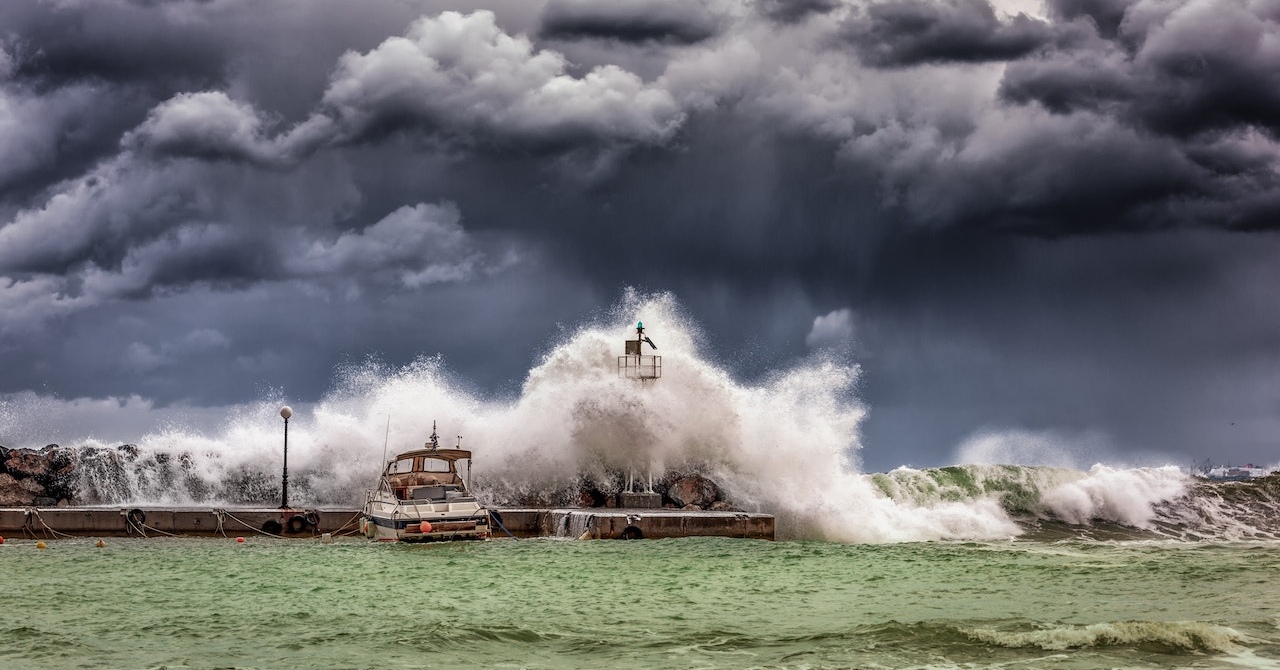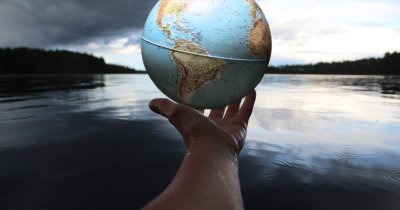According to the World Economic Forum, tipping points take place when climate changes, such as an incremental increase in global temperatures generates a quick transformation across the planet, and sometimes, these can be irreversible.
One such catastrophic change might have even been started in Greenland, as the ice sheet on the territory has been destabilized, according to some experts.
The melting process of the ice in Greenland has been accelerated, which implies that sea levels can rise by as much as seven meters, endangering many coastal settlements on Earth.
David King, former chief scientific advisor for Britain and founder of the Climate Crisis Advisory Group, stated that "the Arctic circle tipping points are now passed".
The Arctic area surpassed the average global warming rate (1.3 degrees Celsius), reaching 3 degrees Celsius, which is especially bad news since methane trapped in permafrost could escape into the atmosphere.
King believes that if more of the very dangerous greenhouse gas is to enter the Earth's atmosphere, it will further accelerate the already hard to control rate of global warming, meaning even more melting glaciers.
He added that "if all of that is released, we'll see temperatures rise 5-8Celsius over 20 years", which would be "extraordinarily destructive to the future of humanity."
United Nations' Secretary General, António Guterres, recently warned humanity of this potential ugly future, pointing at the devastating floods in Pakistan, which he says could be a "window into the future".
"What is happening in Pakistan demonstrates the sheer inadequacy of the global response to the climate crisis, and the betrayal and injustice at the heart of it", he said.
Still, some researchers believe that something can still be done to at least tackle some of the negative impact that is to come.
They suggest that by protecting the remaining natural habitats and ecosystems, reforestation and the implementation of renewable power at an even larger scale, we will be able to offset some of the damage.
Soon, energy coming from renewables is going to be cheaper than that coming from fossil fuels, says Doyne Farmer, director of the complexity economics program at the Oxford Martin School.
According to him, "even if you're a climate denier, you should be behind making the green energy transition quickly just to save money."
Laura Pereira of the Global Change Institute at South Africa's Witwatersrand University, said that "it's scary and it's real - and these are the futures that are going to be opening up to us if we don't act strongly now."
 Mihai - Cristian Ioniță
Mihai - Cristian Ioniță












Any thoughts?